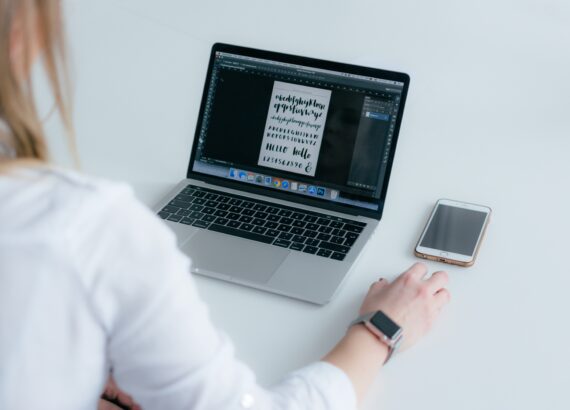keeping track of what we eat is hard. Some days, we’re on top of our water intake, protein macros, and every snack we munch on. Other days? It’s all the same – you get back to your same old cravings for spice and fried stuff and, behind the scenes, promise yourself to continue your diet plan from tomorrow. But the reality is that nutrition is not just about perfection; it’s also about awareness and a reality check. And in 2025, we’re lucky. We’ve got a buffet of free diet-tracking apps that go way beyond boring calorie counts. They speak our language. They understand habits, cravings, schedules, and even the emotional side of eating. And that is why they are the best food-tracking apps.
So, we tested the top apps out there—not just for features, but for how they actually feel to use. And here are the 10 best nutrition tracking apps of 2025, chosen for people who live in the real world.
1. Nutrisense
Nutrisense goes beyond basic calorie counting—it’s built for those who want to understand how their body responds to food in real-time. It pairs with a continuous glucose monitor (CGM), providing deep insights into your body’s response to what you eat.
What makes it shine is the combo of personal data + expert guidance. You don’t just get a chart—you get a dietitian to help you interpret it.
Best for: People who love data, have health conditions like insulin resistance or diabetes or want to understand how their body reacts to food truly.
2. MyFitnessPal
Here’s the OG. MyFitnessPal has been around forever, and it’s still at the top of its game. With the biggest food database, barcode scanning, and now AI-powered logging suggestions, it’s a tracker that just works. You don’t have to overthink it. Open the app and log your lunch. Done. And in 2025, it’s a little more intuitive and encouraging. It feels like your steady, reliable friend who never judges.
Best for: Anyone who wants a solid, all-round tracker—beginners, lifters, dieters, busy humans.
3. Noom
If you’ve ever found yourself eating cake because you’re stressed, lonely, or just bored, Noom gets you. This app takes a psychological approach to food, helping you understand why you eat what you eat. It mixes tracking with bite-sized lessons, coaching, and reflection prompts. It feels less like an app and more like therapy for your fridge habits.
Best for: Emotional eaters, anyone tired of yoyo dieting, or those who want to finally build a sustainable relationship with food.

4. Fooducate
All the packaged foods have labels on them with all the necessary quality details printed. But did you ever wonder if that is really true?
This app scans barcodes and grades products from A to D—based on real ingredients, sugar content, and overall nutrition. It teaches you as you go. You’ll never look at “low-fat” yoghurt the same way again.
Best for: Label readers, parents, and people trying to clean up their diet one snack at a time.
5. Lifesum
Lifesum isn’t just functional—it’s beautiful. The app offers personalized meal plans, mood-based logging, and macro breakdowns in an interface that feels like digital self-care.
Best for: Visual learners, aesthetic lovers, mood-based eaters, and anyone who prefers gentle guidance over rigidity.
6. 8Fit
8Fit bridges nutrition and workout plans in a single app. It’s ideal for those who don’t want multiple apps for fitness and food. With tailored meal plans based on your training intensity, it’s a time-saver and game-changer.
Best for Busy people, home exercisers, or anyone who just wants one app for everything.
7. Carb Manager
If carbs are your kryptonite—or you’re managing blood sugar—Carb Manager is a lifesaver. It tracks net carbs, offers fasting tools, ketone logging, and even meal planning. It’s designed for serious low-carb eaters who still want flexibility and flavour.
Best for Keto folks, diabetics, or anyone on a low-carb/high-fat journey.

8. Paleo.io
Sometimes, less is more. Paleo.io is a minimalist nutrition guide for people eating clean, whole, ancestral foods. You don’t log meals—you check if foods are “paleo-approved” or not. Simple. There’s no calorie counting. No obsessing. Just a quick yes/no system and a straightforward reminder to eat real food.
Best for: Paleo dieters, clean eaters, or anyone burned out from tracking every bite.
9. Lose It!
Lose It! isn’t just a name—it’s a mindset. This app is fun, colourful, and extremely user-friendly. The photo food logging feature is gold (snap, log, done), and the community challenges make healthy living feel more like a team sport. It’s not preachy. It’s positive. And that makes a huge difference when you’re trying to change habits that have taken years to build.
Best for: Anyone wanting to lose weight in a kind, supportive, and gamified way

10. Cronometer
Most apps give you calories and macros. Cronometer gives you micronutrients—think magnesium, selenium, B vitamins, and more. It’s insanely detailed and perfect for those with health conditions, supplements, or plant-based diets. You’ll know if your zinc intake is low. You’ll know exactly how much vitamin C your smoothie gave you. It’s precise, comprehensive, and surprisingly easy to use.
Best for Athletes, vegans, supplement users, or anyone obsessed with nutritional accuracy.
Conclusion
Nutrition apps in 2025 aren’t just about food—they’re about awareness, emotions, identity, and goals.
In Easy Words – Goal Best App
Deep bio-tracking: Nutrisense
Reliable calorie logging: MyFitnessPal
Mindful eating: Noom
Grocery guidance: Fooducate
Beautiful experience: Lifesum
Fitness + food: 8Fit
Low-carb tracking: Carb Manager
Clean, primal diet: Paleo.io
Weight loss: Lose It!
Micronutrient detail: Cronometer
For more such interesting updates, explore Nextr Technology!
Thank you for reading
Buy Web Hosting at an affordable price: Buy Now.
If you want to build your website at an affordable price, contact www.nextr.in
Read this: How AI is Changing Education


















